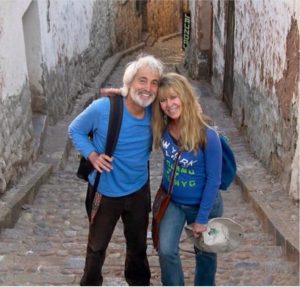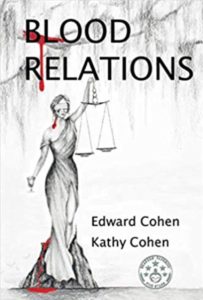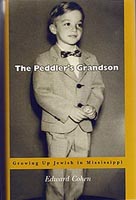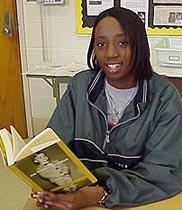Major Works
- Blood Relations (with Kathy Cohen), 2018
- Israel Catfish, 2013
- The Peddler’s Grandson: Growing Up Jewish in Mississippi (1999)
- “Good Mornin’ Blues” (documentary)
- “Hanukkah” (documentary)
- “Passover” (documentary)
- The Natchez Jewish Experience (documentary)
Edward Cohen: A Biography
By Sheena McMorris (SHS)
Edward Cohen is second generation Southern and Jewish on both sides of his family. He was born on July 3, 1948, in Jackson, Mississippi. His father, Leonard P. Cohen was born in 1912 in Jackson, and his mother, Pauline Weltman Cohen, was born in Shreveport, Louisiana. Cohen was the only child.
He went to segregated schools where he was the only Jew in his class on the first day, and he had a hard time being accepted by others (Cohen). He grew up during the civil rights movement, so he experienced a lot of racism (About the author). Since he was forced to be alone, he took up writing.
He started writing short stories at the age of fifteen. He always wanted to be a writer, but he also had other dreams. He wanted to be a chef, a lawyer and a clothing store owner. He did become a lawyer but only for five years (Cohen April 20). Cohen probably wanted to own a clothing store because when he was young, he worked in his family’s clothing store that catered to blacks (About the author). But no matter what he did, he always went back to writing.
His college years were spent at the University of Miami, which had a large Jewish student body. He thought that since there were a lot of Jews there he would fit in, but they said that he was too Southern.
He married in 1988 (Cohen April 14). His wife Kathy, who is very supportive of his career, is also a writer. She co-writes screenplays, and she also edited his first book. The name of the book is The Peddler’s Grandson: Growing Up Jewish in Mississippi. It took Cohen about one year to write this book before it was published by the University Press of Mississippi in 1999.
This book is a one hundred and ninety-three page long biography that tells about his life as a Jew in the South. This book was chosen for Book Sense (Cohen April 20) and won the Best Nonfiction award from the Mississippi Institute of Arts and Letters in April of 2000.
Cohen has also written many documentaries for Mississippi ETV, where he was head writer and executive producer. Some of them are Good Mornin’ Blues with B. B. King, Hanukkah, and Passover (Cohen April 14). He also wrote, edited, and produced The Natchez Jewish Experience.
This film won the Judah P. Magnes Museum Muse Award for the Best Nonfiction Historical Documentary (About the author). Cohen was the head writer and executive producer for Mississippi Educational Television. He is a freelance writer and filmmaker, and he is currently waiting to get approval to write a thriller and turn it into a movie. He and his wife are co-writing a novel that will be a courtroom drama.
He lived in Venice, California, with his wife and his three dogs (Cohen Interview, April 14). His book was honored by the Mississippi Institute of Arts and Letters as the winner of its nonfiction award in 2000. Cohen also won the Mississippi Authors Award for Nonfiction by the Mississippi Library Association in 2000. See UPDATE BELOW.
Edward now lives on a mountainside above Vilcabamba, Ecuador, with his wife, Kathy, two dogs, and two burros.
He has published two novels independently, Israel Catfish, a comic novel about a hapless Jewish dreamer, Harry Israel, who leaves Queens, New York, in the 60’s, to become the world’s first Jewish catfish farmer–in Belzoni, no less.
Edward and his wife Kathy co-wrote Blood Relations, a legal thriller set in New Orleans, which won a Reader’s Favorite award and received a glowing review by J.C. Patterson in the Jackson Clarion Ledger. A young New Orleans lawyer discovers that his father is having an affair with a beautiful lawyer in their firm. To save his parents’ marriage, he decides to steal her away. When she is killed, he has to defend his father for her murder.
Best regards,
Kathy Cohen
Reviews
The Peddler’s Grandson: Growing Up Jewish in Mississippi: A Review
The Peddler’s Grandson: Growing Up Jewish In Mississippi is an autobiography of the author Edward Cohen, who is a Jew who was born in Jackson, Mississippi. He tells the story of how his family came to America from Romania and Poland as immigrants.
His grandfather was a peddler; and his family settled down in the South and tried to fit in. However, Cohen always felt alone because he always felt that people wouldn’t accept him because he was either too Jewish or later, in college, too Southern.
Strangely, the synagogue he went to in Jackson was located next to the state women’s club, which did not allow Jews as members. The high school he went to in the 60’s did not allow blacks. The book is a detailed account of growing up Jewish in the South and is a good book to read.
It is a nicely-written memoir, and, as Stella Suberman, author of The Jew, says, an “intelligent and candid account of the author’s love-hate relationship with each of the powerful, often conflicting cultures that shaped him.” I suggest that you go out and get this book if you like coming-of-age stories and want to understand the changing twentieth century South.
The book won the Best Nonfiction Award from the Mississippi Institute of Arts and Letters in April 2000, and it was also chosen for Book Sense.
Interview 1999
1. When and where were you born?
July 3, 1948, in the old Baptist Hospital in Jackson, on, as my mother later told me, a typically hot Mississippi summer day, and in those days no one had air conditioning.
2. How many books have you written?
This is my first book. I’ve also written numerous documentaries from the days when I was Head Writer at Mississippi ETV. I’ve also written several screenplays out here in L.A.
3. How many kids, sisters, and or brothers do you have?
I was an only child.
4. Are you married? What is your wife’s name?
Yes, I’m married. My wife’s name is Kathy Cohen.
5. Is there anything interesting about you?
I hope so. For instance in the realm of fate and romance, My first job after college was at Mississippi ETV in Jackson, where my future wife Kathy worked. Her last day was the day before I started, and we didn’t meet until 14 years later. I’ve had three separate careers (so far). After ETV, I became a corporate lawyer while my wife Kathy was a stock broker. We both chunked our careers to write full-time and moved to L.A., not hardly knowing a soul out here. We moved from Jackson ( very conservative place) to the heart of Venice Beach, California, where not 6 blocks from our house lies the Pacific Ocean and a gallery of bizarre people who stroll and perform daily (e.g., the chains juggler) and Pinkman, who rides a unicycle and wears a pink unitard. We live in a beach cottage with our three cairn terriers (like Toto in The Wizard of Oz).
6. Do you have a biography about yourself at hand?
Edward Cohen was formerly head writer and executive producer at Mississippi Educational Television, where he wrote several award winning PBS documentaries, including “Hanukkah” and “Passover” with Ed Asner and “Good Mornin’ Blues” with B.B. King. His book, The Peddler’s Grandson: Growing Up Jewish in Mississippi (University Press of Mississippi, 1999) recently won the Best Nonfiction award from the Mississippi Institute of Arts and Letters. The book was also chosen for Book Sense, the top recommendations of independent booksellers nationwide. He lives in Venice, California, where he is a writer and filmmaker.
7. If so, is it possible that I can receive any information that you think is necessary for this project?
The book jacket has several blurbs from noted authors. USA TODAY called the book “a memoir of remarkable universality.” If you need other reviews or more information, please do not hesitate to contact me. As an interviewer myself, I know the importance of a few good anecdotes to enliven an article or review. A couple come to mind–my great uncle Sam was very fond of his mustache, so when he was forced to escape from Romania in Romania in the 1890s (to avoid being drafted for a 15 year term in the king’s army), he did so in the dead of night, wearing a woman’s dressed but still with his mustache. Another ironic twist: I never fully fit in with southerners growing up in Mississippi (because I was Jewish) and thought when I went away to college, to the University of Miami with its large Jewish student body, I thought I’d finally fit in? Guess what? They thought I was too southern.
Best regards,
Edward Cohen
An E-mail Interview with Edward Cohen
By Sheena McMorris (SHS), April 20, 2000
1. What are your parents’ names?
My father is Leonard P. Cohen, born in 1912 on Fortification Street in Jackson, Mississippi (back then people didn’t go to hospitals for childbirth). My mother’s name was (she died in 1991) Pauline Weltman Cohen, born in Shreveport, La. on Dec. 5, 1916. So I’m 2nd generation southern and Jewish on both sides.
2. What inspired you to become a writer?
When I was around 15 I started writing stories (I’d always loved to read) and always planned big novels (which never got written). Then, in the 11th grade, I wrote some stories as an assignment in English class and the teacher, Ms. Gardner, liked them and encouraged me. Due to that encouragement, I wrote more stories. I’d always liked words and now I found I liked putting them together into stories. Though I planned other, more down-to-earth careers, I always came back to writing.
3. How long did it take you to write your book?
Around a year. An editor at University Press, who had read an article I’d written for the Smithsonian, approached me about a book. I wrote the proposal in about two months, then wrote and rewrote the book itself in a little under ten months.
4. How long have you been married?
Since 1988. My wife, Kathy, edited my book and also co-writes screenplays with me.
5. Are you working on any other books?
Right now I’m co-writing (with my wife) a novel, which is an adaptation of a screenplay we’d written. It’s very different from my memoir–a courtroom drama.
6. What advice would you give someone who wants to be a writer?
If you love it (or feel it’s something you HAVE to do) do it. If not, don’t, because writing is definitely not a stable source of income. But if you do want to be a writer, the simplest advice I have to to write and write some more. Get feedback from people you trust, then write some more. I’d say major in English or writing in college. Keep writing. A writer for the New Yorker famously said, “I hate to write but love having written.” It’s a bit lonely because writing is a pretty solitary affair and the writer, unlike, say the musician or painter, is out there with just his/her mind and a blank computer screen. But the writer is the only one artist who can create something from absolutely nothing and it’s a wonderful feeling when it comes out as a good story.
7. What was it like growing up Jewish in Mississippi?
It would take 193 pages (the length of my book) to answer that. But, briefly, it was feeling almost like everyone else but always different and never knowing whether it was because others regarded me as different or because I was creating the difference. But I always felt set apart.
8. Are you still treated different because of your race?
Judaism isn’t a race–it’s a religion and culture. But no, out here in the movie business, many of, even most people. are Jewish, so I don’t feel different. I do feel different on account of my southernness.
9. What made you move to Venice, California?
It’s near the ocean, which I love, no smog, very bohemian, and also I have 3 dogs and Venice has the sort of anything-goes attitude that allowed me to find a place to live.
10. Do you like it there?
Yes, I like the cultural diversity and the big city. But everything’s harder here (traffic, etc.)
11. Are you working on any current films?
Right now, I’m waiting for the go-ahead from the producer to write a thriller. I’m mostly working on the novel.
12. Do you like making films and writing?
I like them both. When you make a film, you’re dealing a lot with other people and that’s a nice break from the solitude of writing. I’d rather direct my screenplays but don’t have the clout to do that.
13. What other things do you like to do other than writing and film
making?
That’s pretty much all I do. I like to travel, I like to read.
14. Is your wife very supportive of your career choice?
She’s always encouraged me, even though writing is, as I’ve said, an undependable job. She herself is a writer, so she knows the territory.
15. Does she enjoy your work?
Yes, though she’s a very tough editor and is satisfied only when it’s the best I can make it.
16. Has writing always been one of your goals?
Yes, at least since I was around 15 or 16. Though at first I wasn’t aware of how strong the pull toward writing would be. I’d be basically unfit for anything else because writing is always in the back of my mind.
17. If not what have your goals been?
Other goals: open a clothing store (my father had a store); be a chef. And be a lawyer (I was a lawyer for five years).
In conclusion, some people are artists. They don’t necessarily choose to be artists, but it sort of chooses them. Lots of people don’t take the artist’s path,because it’s not “practical.” And of course it isn’t.
I hope this helps.
Edward Cohen
Related Websites
- This site gives editorial reviews and information about buying the book.
Bibliography
- Cohen, Edward. Available Online email: Kathy Cohen <[email protected]>, April 14, 2000.
- Cohen, Edward. Available Online email: Kathy Cohen <[email protected]>, April 20, 2000.
- Cohen, Edward. The Peddler’s Grandson: Growing Up Jewish in Mississippi. Jackson, Mississippi: University Press of Mississippi, 1999.
- The Peddler’s Grandson: Growing Up Jewish in Mississippi: http://www.peddlersgrandson.com/, April 12, 2000.




